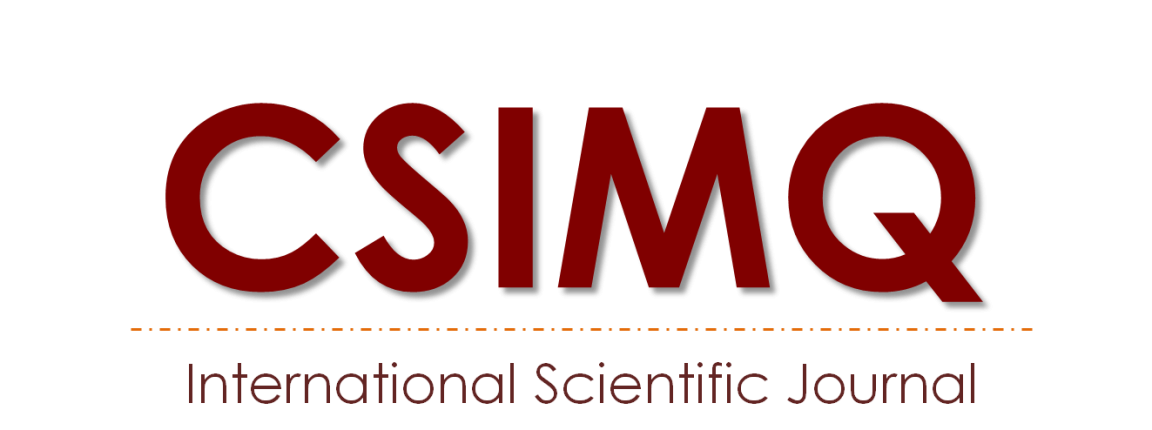Editorial Policies
- Focus and Scope
- Section Policies
- Peer Review Process
- Open Access Policy
- Archiving
- Plagiarism Detection Policy
Focus and Scope
The aim of the journal is to publish peer reviewed original research papers reporting on studies of the structure, algorithms, behavior, and interactions of natural, social, socio-technical, and artificial systems that store, process, access, and communicate information. It concerns data, information, and knowledge fundamentals, models, and management from the points of view of their discovery, engineering, and application.
The journal publishes four regular issues per year in the following areas:
Social, Socio-technical, Organization and Business Informatics, which includes but is not limited to
- Social Systems Informatics
- Socio-technical Systems Informatics
- Organization Informatics
- Business Informatics
- Natural Systems Informatics
- Artificial Systems Informatics
High Complexity Information Systems Engineering, which includes but is not limited to
- Intelligent Systems Engineering
- Complex Systems Modeling and Software Development
- Adaptive and Adaptable Information Systems Engineering
- Networked Systems Engineering
- Emergent and Virtual Systems Engineering
Data and Knowledge Analytics, which includes but is not limited to
- Data Intesive Computing
- Semantic Data Analysis and Management
- Big Data Analytics
- Knowledge Analytics
- Business Analytics
- Social Networks Analytics
Supercomputing, which includes but is not limited to
- High Performance Computing
- High Throughput Computing
- Grid Computing
- Cloud Computing
- Supercomputing for Engineering Applications
- Mathematical and Analytical Methods for Scientific Computing
- Supercomputing for Social Systems
Special issues can be published upon the request.
The main principles of the journal are the following:
- Usefulness and relevance of papers
- Comfort for authors and readers
- Flexibility in publishing
Section Policies
Articles
Peer Review Process
Currently the review process is organized in csimq-journals.rtu.lv
Reviewers of CSIMQ follow the following criteria in evaluation:
1. Usefulness
2. Scientific Contribution
3. Practical Relevance
4. Clarity
5. Technical Quality (Formating is not considered here - authors are free to choose the format of submission. The only requirements are as follows: (Page A4, doc or docx, references shall be fully described according to academic standards)
Open Access Policy
This journal provides immediate open access to its content on the principle that making research freely available to the public supports a greater global exchange of knowledge.
Archiving
This journal utilizes the LOCKSS system to create a distributed archiving system among participating libraries and permits those libraries to create permanent archives of the journal for purposes of preservation and restoration. More...
Plagiarism Detection Policy
All CSIMQ content is screened for possible plagiarism using plagiarism detection tool CrossCheck.
CrossCheck compares submitted manuscripts against a very large database of published technical papers (as well as over 6 billion Web pages), and provides a summary report that highlights the similarity to previously published work. The CSIMQ editorial team can then follow up to isolate and review the high-scoring papers as necessary.
Plagiarism detection systems are only as effective as the amount and quality of the source content within them. CrossCheck’s significant advantage over all other similar services is that it includes the indexed, full-text content of participating CrossCheck member publishers.
